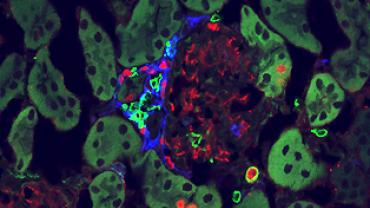
Autoimmune diseases have become increasingly more common. Medical doctors are taught that our health is the result of our genes and that health is preprogrammed and predetermined. This view rejects the possibility that health reflects an accumulation of choices that we make and the environmental impact around us. The reality is our health and well-being are the result of how our environment interacts with our genes.
There are different autoimmune diseases within all specialties and all of these are looked at individually yet they all share common triggers. Therefore in knowing what causes the immune system to attack itself and knowing some of the triggers for what causes a malfunction in the immune system (which we do) we can achieve greater success in helping patients with these conditions.
Autoimmunity occurs a few different ways. With the first way there can be a mistaken identity and the body attacks itself. This can occur with a virus where there is tissue destruction with the virus appearing to be foreign to the body. In addition this can happen with heavy metal toxicities such as mercury. The second way autoimmunity occurs is through molecular mimicry which happens when the body makes an antibody (a protein that attacks objects in the body that appear to be foreign) to a specific antigen. These antigens can resemble certain proteins in the body and the antibodies attack our body's own tissues. The third way is the development of T cells (of the immune system). This occurrence can be affected by genetics stress and environmental triggers. Environmental triggers are what integrative doctors mainly work with in functional medicine. These can be food triggers such as gluten or other food sensitivities that can trigger inflammation as well as anything coming in with the food such as toxins or molds. Other factors include a person's nutrient status and their gut health which includes conditions such as leaky gut and dysbiosis. Finally there are toxins that can affect the status of the immune system such as heavy metals and xenobiotics as well as the total toxic burden in the body.
Many autoimmune conditions need to be addressed by optimizing gut health. Dietary approaches provide the most effective means to returning balance and dysfunction with the gastrointestinal system. Patients may need antimicrobials botanicals enzymes prebiotics and probiotics to optimize the gastrointestinal environment. Integrative health care practitioners can offer hope to these patients. Diagnostic considerations include stool testing organic acid testing food antibody testing as well as gluten sensitivity testing or elimination of gluten from the diet.
Gastrointestinal support following the 4-R approach
Remove
This focuses on eliminating pathogenic bacteria fungi viruses and parasites. Botanical extracts have a long history as natural antimicrobials. They offer a broad spectrum of activity against common pathogens in conditions of dysbiosis and are relatively sparing of normal flora. These may include tribulus extract berberine sulfate sweet wormwood black walnut grapefruit extract bearberry extract and caprylic acid. These botanical extracts are commonly represented on sensitivity testing stool profiles by major functional laboratories.
Replace
It is important to use digestive enzymes to support optimal digestion of food. Individuals who do not secrete enough proteases suffer from multiple food allergies and cause problems such as food allergies leaky gut colitis and autoimmune diseases.
Reinoculate
Proper probiotic supplementation helps to assist with food and nutrient assimilation inhibits harmful bacteria and replaces beneficial bacteria lost to antibiotic use disease poor diets and stress.
Repair
Glutamine is the most important nutritional substance for healthy intestinal cells and main fuel of the colonocytes of the large intestine. Glutamine is essential in maintaining proper gastrointestinal function and helping to prevent "leaky gut." N-acetyl glucosamine also supports proper mucosal health and reduces intestinal permeability. In addition it inhibits the growth and functional of abnormal T-cells that incorrectly direct the immune system to attack specific tissues of the body such as in autoimmune disease. Combining L-glutamine N-acetyl glucosamine with mucilaginous relaxing herbs (such as DGL slippery elm marshmallow chamomile okra and cat's claw) will help soothe and coat the intestinal lining and promote healing of inflamed tissue.
What appears to happen with most autoimmune diseases is that there are multiple triggers chronically stimulating the immune system over a long period of time in multiple ways. As a result our immune system gets into an overloaded overwhelmed state and loses its ability to function. Lifestyle choices and environmental exposures filtered through genetic predisposition are fundamental factors in the expression of disease and a successful treatment approach must address these factors.
By Dr. Michael Jurgelewicz